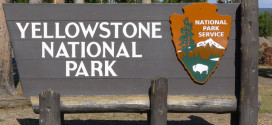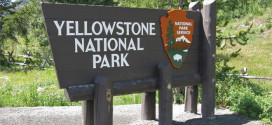The norovirus causing gastrointestinal (GI) illness in Yellowstone and Grand Teton National Parks is proving to be hard to defeat, as visitors are warned to be vigilant against the nasty bug. On June 7, several members of a tour group arrived in Mammoth Hot Springs complaining of stomach flu and other GI symptoms. Within 48 hours, numerous employees, whose jobs place them in direct contact with visitors, reported similar symptoms. Tests conducted on some of the sick visitors and employees came back positive for norovirus, the most common cause of acute gastroenteritis in the U.S.
Over the past week, additional cases of GI illness among visitors and employees have been reported at both national parks. To date, those reports include over 100 suspected cases of norovirus among employees in Yellowstone and about 50 suspected cases among employees in Grand Teton. Fifty visitors also went to medical clinics within Yellowstone with symptoms of gastrointestinal illness.
While only a small percentage of people have been affected, the National Park Service and all the businesses serving park visitors have instituted a variety of precautions intended to limit the spread of the virus. These include increased cleaning and disinfection of all public areas including stores, gift shops, restaurants, and lodging facilities, and isolation of potentially infected employees until they have been symptom-free for at least 72 hours. There are reports of altered practices within Park restaurants as well.
According to the Centers for Disease Control and Prevention (CDC), about 21-million people in the United States contract norovirus every year. Norovirus is usually not serious. Most people get better in 1 to 2 days. Symptoms include stomach pain, vomiting, and diarrhea. This very contagious virus can be contracted by direct contact with an infected individual, by touching surfaces contaminated with norovirus, or by consuming contaminated food or drink.
Frequent hand washing with soap is the best way for individuals to limit their chance of contracting this virus. Wash hands carefully, especially after using the bathroom or changing diapers, and always before eating or preparing food. Alcohol- based sanitizers are not a substitute for soap and water, but serve as a temporary measure if soap and water are not available.
 Yellowstone Insider Your Complete Guide to America's First National Park
Yellowstone Insider Your Complete Guide to America's First National Park





